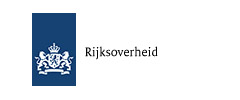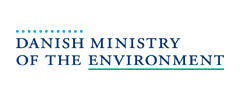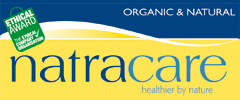Breast Cancer: Policy and Prevention
Linking Breast cancer and our environment; is chemical exposure the missing link factor in the rise of the breast cancer epidemic?
| WECF Campaign
| Countries: | EU |
| Donors: | WECF; European Commission DG-Environment |
| Partners: | WECF Netherlands, WECF Germany, WECF United Kingdom |
| Issues: | Chemicals & Health, Gender & Rights |
| Duration: | 01/2007 - 12/2025 |

Is chemical exposure the missing link factor in breast cancer?
Mounting evidence points to exposure to environmental contaminants as a major concern in relation to rising cases of breast cancer. WECF, as the women's organisation on health and the environment, calls on the EU for a strategy on the primary prevention of breast cancer.
Related News
Human Biomonitoring for Europe
Vienna, 26 September: stakeholder forum
28.09.2018
February 4: World Cancer Day
WECF: 'Address primary prevention as it should'
04.02.2015 | WECF
“From Pink to Prevention”: Stopping breast cancer before it starts
A new campaign is launched to getting environmental and occupational risk factors taken seriously in the breast cancer debate.
22.01.2015
"Women are exposed to hazardous chemicals not only differently than men, but they also have a higher susceptibility to them"
Report on the Women and Chemicals Side Event at OEWG2 of SAICM in Geneva, December 17
19.12.2014 | Alexandra Caterbow, WICF
"From Science to Prevention": WECF organized international conference on breast cancer
"What is primary prevention of breast cancer all about in 2014?" Lyon, France, 14th October 2014, Ruban de l'Espoir 2014
03.10.2014 | WECF
Research finds link between chemicals and breast cancer
Chemicals in our daily environment pose threat to women's health
19.05.2014
Delays are wasting opportunities for prevention of chronic disease and healthcare savings
Fifteen EDC-Free Europe campaigners presented José Manuel Barroso, European Commission President, with a huge EDC-Free poster today in an urgent call for action on endocrine disrupting chemicals.
13.11.2013 | EDC Free Coalition
Why aren't we up in arms?
Blogpost by Clare Dimmer, Chair, Breast Cancer UK
25.06.2013 | Breast Cancer UK
Avoid Endocrine Disrupting Chemicals (EDCs) – German Advocacy Campaign
Protect children, inform pregnant women and expecting parents
16.07.2012
Brustkrebs ist keine Geschäftsidee - Gemeinsame Erklärung zum „Brustkrebsmonat“
Frauengesundheitsorganisationen fordern Stopp des Missbrauchs
18.10.2011 | Johanna Hausmann
Scientists and health professionals urge UN and WHO to tackle the challenge of non-communicable diseases by global action
United Nations High Level Expert Committee Meeting on the Prevention and Control of Non-Communicable Diseases at the global level, 19th-20th September: will action follow the Asturias declaration?
16.09.2011 | WECF Press Release
WECF Pressemitteilung: Wenn Umwelt krank macht – Umweltbelastung und Brustkrebs
WECF und AKF nehmen mit der neuen Broschüre „Die verkannte Gefahr - Umweltbelastung und Brustkrebs“ den Zusammenhang von Umweltbelastungen und Brustkrebs unter die Lupe und fordert mehr politisches Engagement
09.11.2010 | Johanna Hausmann
European food panel fails to protect EU citizen’s health from plastic component, BPA
The Health and Environment Alliance (HEAL), WWF, CHEM Trust and Breast Cancer UK are dismayed at today's conclusion from the European Food Safety Authority (EFSA) that no stronger protection for public health is needed from the controversial synthetic chemical bisphenol A (BPA)
07.10.2010 | HEAL
Risk of breast cancer
Recent research suggests that the risk of breast cancer is higher among women who try to keep their houses clean and fragrant. Usage of fresheners, mould removers and cleaning products is linked to appearance of breast cancer.
02.08.2010 | Silent Spring Institute in Newton, Massachusetts, USA
Cancer Action NY Files Complaint Against US EPA Alleging Chemical Industry Control
Cancer Action NY Files Complaint Against US EPA Alleging Chemical Industry Control Renders the Agency Incapable of Utilizing Science to Protect the Environment and the Public Health
04.07.2010 | Cancer Action NY
President's Cancer Panel: Environmentally caused cancers are 'grossly underestimated' and 'needlessly devastate American lives".
"The true burden of environmentally induced cancers has been grossly underestimated," says the President's Cancer Panel in a strongly reported report
04.07.2010 | Environment and Health News
Joint action of NGOs and scientists to call for a reduction of BPA exposure, especially for children and pregnant women
WECF signed a letter to the European Food Safety Authority (EFSA) pointing out new scientific data and the need for a stricter regulation of BPA.
23.06.2010 | Alexandra Caterbow
Un Plan cancer sans prévention primaire (A plan for cancer but without primary prevention )
France's Second Cancer Plan (2009-2013) – WECF’s position
12.11.2009 | Press Release WECF France
'Le rôle de l’environnement dans le cancer du sein', tel est le titre de la brochure présentée par WECF France
WECF France presented the brochure at the Congress 'Un autre regard sur le Cancer', held in Aix en Provence on 17 and 18 April
20.04.2009 | WECF Press Release
Duizenden gevallen van borstkanker kunnen worden voorkomen
WECF artikel in VAMP, Magazine voor Vrouwelijke Artsen Met Power
13.03.2009 | Janna Koppe en Marie Kranendonk
October Breast Cancer Month: Beauticians magazine publishes article on WECF Brochure
Article in Estheticienne on 'Linking Breast Cancer and the Environment' (text in Dutch)
05.11.2008 | Estheticienne, November Issue
Breast is best, concludes a new scientific review
Despite the health risks posed by contaminants, breastfeeding nearly always remains the optimal choice for infant feeding.
31.10.2008 | Health & Environment Alliance (HEAL)
Environmental factors increase breast cancer risk! WECF launches Dutch Brochure
WECF, Platform Gezondheid en Milieu, Vrouw en Milieu and Ecobaby have launched Dutch brochure on Breast Cancer and the Evironment
17.10.2008 | WECF Press Release
Borstkanker en Milieu - Naar een Preventief Beleid (Dutch publication of WECF Brochure 'Linking Breast Cancer and the Environment')
WECF launched Dutch adaptation of report 'Linking Breastcancer and the Environment'
17.10.2008
First Reach substance hit-list emerges
The European chemicals agency has published a first draft list of substances that could eventually be subject to tough authorisation requirements prohibiting marketing and use unless firms can show there is a compelling reason to allow them.
04.07.2008 | ENDS Europe DAILY
Chemicals may increase breast cancer risk
Natural and synthetic estrogens are well-known risk factor for developing breast cancer. Manmade chemicals with oestrogen effect may also raise risk for breast cancer. That is shown by new report “Breast cancer and exposure to hormonally active chemicals: An appraisal of the scientific evidence”.
13.06.2008 | CASCADE newsletter
Board Europa Donna Germany has stepped back
Major breakthrough in the interest of women with breast cancer. German board stepped back because of discontent with financial dependence on pharmaceutical industry by mother organisation Europa Donna Europe
12.05.2008 | Chantal van den Bossche
Prevention is the cure!
WECF's message on primary prevention of breast cancer well received at Breast Cancer Conference in Berlin (press releases in English and German)
16.04.2008 | Chantal van den Bossche
European Parliament passed important resolution on combatting cancer
Cancer Task Force will be established in European Parliament which will look into environmental causes which may be linked to breastcancer
11.04.2008 | ENDS Europe
Politics and Prevention
Linking breast cancer and our environment. Tens of thousands of cases of breast cancer could be prevented in the EU if environmental and occupational factors were recognised as contributary factors in the rising breast cancer epidemic. A report by WECF.
18.01.2008 | Chantal van den Bossche
Cancer and Environmental Chemicals
New policy adopted by California Medical Association
05.12.2007 | Chantal van den Bossche
Project Description
This project focuses on the current epidemic of breast cancer which cripples health budgets all over the EU and links it with chemical exposure. What if this epidemic was preventable? To highlight the neglect of the risk factors, WECF released a a reporton January 8th focusing on the missing link between breast cancer and the environment.
The 20 paged publication explores the politics of prevention and asks why primary prevention is being ignored in favour of an unsustainable and costly epidemic. Survival rates continue to fall despite increased spending. Every 6 minutes a woman dies from breast cancer in the EU.
WECF, as the women's organisation on health and the environment, calls on the EU for a strategy on the primary prevention of breast cancer.This publication focuses on the current epidemic of breast cancer which cripples health budgets all over the EU and links it with chemical exposure. What if this epidemic was preventable

































